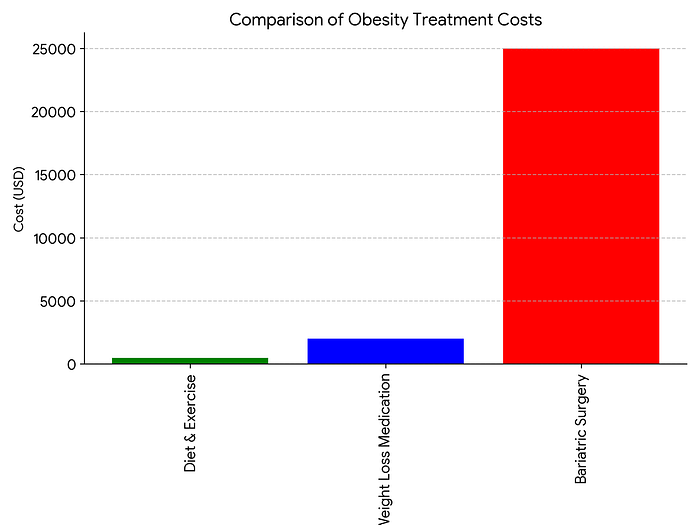Obesity’s grip on global health continues to tighten, yet emerging treatments like GLP-1 receptor agonists, combined with structured exercise programs, offer a beacon of hope. This exploration delves into the multifaceted approach to sustainable weight loss, spotlighting the breakthroughs, challenges, and the human stories at the heart of this journey.
The Science of GLP-1 Receptor Agonists Unpacked
GLP-1 receptor agonists transcend traditional weight loss medications, emerging as a cornerstone in obesity management. By mimicking the incretin hormone GLP-1, these medications not only enhance insulin secretion and suppress appetite but also slow gastric emptying, leading to significant body weight reduction. Their impact extends beyond the scales, offering potential to mitigate obesity-related conditions such as type 2 diabetes and cardiovascular disease. However, understanding their side effects, including gastrointestinal discomfort, is essential for informed usage.

Exercise: Crafting the Blueprint for Movement
The critical role of exercise in this journey cannot be overstated. Detailed regimens that blend cardiovascular and strength training exercises, tailored to individual capabilities and needs, underscore the importance of physical activity. Recommendations for exercise frequency (at least 150 minutes per week), intensity (moderate to vigorous), and duration (sessions ranging from 30 to 60 minutes) provide a practical framework for daily integration.
Through the Lens of Participants
The narratives of participants like “Jane,” balancing her weight loss journey with a full-time job, and “Mike,” discovering a passion for fitness, add a deeply human element to the scientific data. Their stories of overcoming obstacles, finding community support, and discovering personal strength offer both inspiration and practical strategies for adherence.

The Road to Long-term Success
Long-term sustainability remains a critical challenge. Beyond the treatment phase, the importance of psychological support, regular follow-ups with healthcare providers, and leveraging community resources are emphasized to maintain the gains achieved. This acknowledges the ongoing battle against obesity and the necessity of a supportive network.
Navigating Access and Affordability
In light of recent research underscoring the efficacy of combining GLP-1 receptor agonists with supervised exercise for sustaining weight loss, it’s imperative to address the critical barriers of access and affordability that many face. This calls for a strategic overhaul in how treatments are made available and financially feasible for the wider population.
Insurance coverage must evolve to include comprehensive obesity management strategies, recognizing the long-term health benefits and cost savings of preventing obesity-related complications. Expanding insurance to cover not only GLP-1 receptor agonists but also supervised exercise programs can significantly reduce the economic burden on individuals seeking to maintain weight loss post-treatment.
Additionally, the development of patient assistance programs specifically designed for those prescribed GLP-1 receptor agonists, coupled with accessible community exercise options, could mitigate financial constraints. By enhancing access to both innovative pharmacotherapy and supportive lifestyle interventions, we can ensure that effective obesity management is not a privilege but a standard of care available to all who need it.
Thus, the pathway to transforming obesity care lies in dismantling the barriers of access and affordability through informed policy changes, robust insurance models, and supportive community health initiatives. This approach will not only empower individuals in their weight loss journey but also pave the way for a healthier, more inclusive future.
The Synergy of Diet and Treatment
A holistic approach to obesity management integrates dietary strategies with GLP-1 receptor agonists and exercise regimens. This segment explores nutritional recommendations that complement pharmacological treatment and physical activity, emphasizing the role of balanced, nutrient-rich diets in enhancing overall outcomes.

A Clarion Call to Healthcare Providers
Healthcare professionals are urged to adopt and advocate for this holistic approach to obesity management, emphasizing the need to stay informed about the latest treatments, understand patient needs, and develop personalized, multifaceted care plans.
Implications for Policy and Practice
The discussion advocates for policies supporting comprehensive obesity management strategies, from research funding and healthy food subsidies to insurance coverage that includes all facets of treatment.
Expanding on GLP-1 Receptor Agonists in Type 2 Diabetes Management
Targeting the incretin system deficiency in type 2 diabetes (T2D) with GLP-1 receptor agonists (GLP-1RAs) has become a well-established treatment approach. These agents not only lower glycated hemoglobin (HbA1c) effectively but also have an inherently low potential for hypoglycemia and contribute to weight reduction. Significantly, cardiovascular outcomes trials have demonstrated the cardiovascular safety of GLP-1RAs, with some agents proven to reduce the risk of major adverse cardiovascular events (MACE) in high-risk patients.
The advent of oral GLP-1RA, such as oral semaglutide, marks a significant advancement, potentially broadening the clinical use of GLP-1RAs. This development addresses the challenges of adherence and persistence associated with injectable forms, offering a more convenient option for T2D management and making this effective treatment accessible to more patients.
In Conclusion
The evolving landscape of obesity management and type 2 diabetes treatment, highlighted by the introduction of GLP-1 receptor agonists and the integration of exercise and dietary strategies, offers new hope for patients. These advancements underscore the critical importance of a comprehensive, multidisciplinary approach to these complex conditions, focusing on innovation, accessibility, and patient-centered care.
Join the Conversation on Transforming Obesity Management!
We’re on a mission to explore new treatments and strategies for obesity management and we need your input. Share your experiences, thoughts, and insights in the comments below. Whether it’s about GLP-1 receptor agonists, exercise routines, or diet changes, your story could inspire and help others.
Don’t keep this to yourself! Spread the word by sharing this article with friends, family, or on social media. Every share helps us reach someone who might be looking for this very information.
By joining the discussion and sharing this article, you’re not just contributing your knowledge — you’re also supporting others on their journey to better health. Let’s make a difference together. Your voice is powerful; let’s hear it!
interested in more insights on fitness and supplementation? Dive deeper with us at shopdarkcave.com for more informative articles tailored to your fitness journey!
0 comments